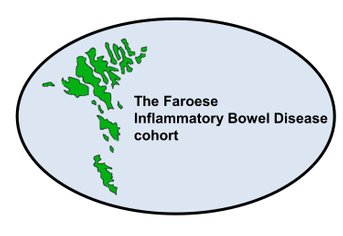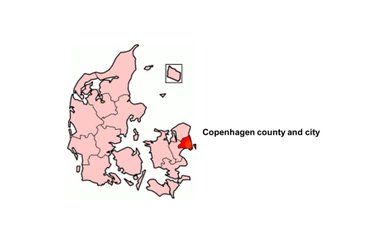PROJECTS
Below are some of the projects with which I am involved. If you are interested in collaborating, or want to know more about the projects, please feel free to contact me.
The Danish Inflammatory Bowel Disease Biobank
The Danish Inflammatory Bowel Disease Biobank will investigate whether proteomics, transcriptomics and microbiota profiling of biomaterial from IBD patients sampled before their treatment starts, and then subsequently at regular intervals, can predict treatment outcome and thus match profiles with specific treatment options. Furthermore, we will investigate whether sequential samples from single patients will allow for the identification of biological patterns associated with disease progression and intestinal degeneration in IBD. This multicentre study taking place across Denmark will include IBD patients starting biological therapy for the first time.
The study is currently enrolling patients.
The Epi-IBD cohort
The Epi-IBD study group consists of centres from across Europe that are interested in conducting epidemiological research in inflammatory bowel disease. The aim of the groups is to investigate and compare IBD incidence, clinical presentations, disease outcomes, treatment choices, and the impact of such choices on disease course across Europe. The group has established two population-based inception cohorts of more than 2,000 patients that are being followed prospectively. A third cohort is currently being assembled.
More information can be found here: www.epi-ibd.org
The Faroese Inflammatory Bowel Disease cohort
The Faroe Islands – an archipelago located in the North Atlantic Ocean with a total population of 49,000 people – constitutes a unique population, having remained isolated and relatively homogenous throughout history, with a small number of founders and little migration. The incidence of IBD on the Faroe Islands (>80 per 100,000 per year in 2014) is the highest recorded in the world.
The Faroese Inflammatory Bowel Disease cohort is a prospective cohort of all patients diagnosed on the Faore Islands with IBD since 1960. Furthermore, the cohort includes a biobank of patients, their healthy relatives, and healthy controls.
The Copenhagen County cohortS 1962-1987 AND 2003-2005
Between 1962-1987 and 2003-2005 all incident adult and pediatric patients witin Copenhagen County and City were included in two prospective, population-based cohorts.
The cohorts have been followed-up for fifty and ten years, respecitvely, in order to describe the natural disease course, outcomes (including surgeries and hospitalization), as well as treatment strategies and their impact on the disease course in these Copenhagen County patients.
The influence of genetics, immunity, and the microbiome on the prognosis of inflammatory bowel disease (IBD Prognosis Study)
The aim of the IBD Prognosis study is to understand the underlying reasons for the heterogeneous course of IBD, including the differential need for, and response to, treatment. To do so, we will create a population-based inception cohort of newly diagnosed patients with IBD. Patients will be followed prospectively for their disease course and will undergo regular collection of intestinal biopsies, stool, serum, and whole blood for the analysis of biomarkers, microbiome and genetic profiles, as well as environmental information at predefined time points and at significant clinical events such as progression of disease or surgery. Having access to a detailed clinical characterization of these patients over time, allied with a unique biobank, will provide us the opportunity to develop composite scores incorporating clinical, genetic, microbiome and serological information that we can then use to predict outcomes such as disease progression.


